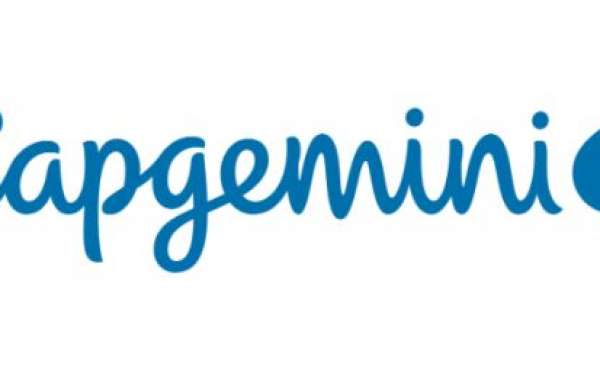Capgemini, a global leader in consulting, technology services, and digital transformation, has become a significant player in the industry. With its reputation for innovation and strong business growth, it's no surprise that investors are eager to understand the nuances of its unlisted share price. While Capgemini is a well-established name in the stock market, there's a growing interest in its unlisted shares, as these can offer unique opportunities for investors looking for early-stage exposure to the company.
What is the Capgemini Unlisted Share Price?
The Capgemini unlisted share price represents the value of the company's shares before they are publicly traded on major stock exchanges. Unlike publicly traded shares, which are subject to daily market fluctuations and public disclosures, unlisted shares are traded privately and can be more challenging to assess. These shares are often exchanged between private investors, venture capitalists, or institutional investors looking to get in on the company’s potential future growth.
Understanding the Capgemini unlisted share price is crucial for investors seeking opportunities in pre-IPO stocks or those interested in private equity investments. The price of these unlisted shares can vary significantly based on factors such as company performance, market demand, and overall economic conditions.
Factors Influencing Capgemini Unlisted Share Price
Company Performance: Capgemini’s financial health is a primary driver of its unlisted share price. Investors closely monitor the company's revenue growth, profitability, and strategic initiatives to assess the potential future value of its shares.
Market Demand: The demand for Capgemini unlisted shares also influences their price. If more investors are interested in acquiring these shares, the price may rise due to competition. Conversely, if demand weakens, the price could decrease.
Economic Conditions: Broader economic trends and market conditions can also impact the Capgemini unlisted share price. During periods of economic growth, investors may be more willing to invest in unlisted shares, driving up prices. In contrast, during economic downturns, prices may soften as investors become more risk-averse.
Sector Trends: As a technology and consulting giant, Capgemini's unlisted share price is also affected by trends in the IT and consulting sectors. Disruptive technologies, regulatory changes, and market competition can all impact investor sentiment and, in turn, the share price.
Valuation of Capgemini's Unlisted Shares
Valuing unlisted shares can be complex due to the lack of transparent market data. The Capgemini unlisted share price is often determined through private negotiations, and the absence of daily market pricing makes it harder to establish a firm valuation. However, investors and analysts typically rely on several methods to assess the value of these shares:
- Comparable Company Analysis: This involves comparing Capgemini's financial metrics with similar publicly traded companies to estimate the fair value of its unlisted shares.
- Discounted Cash Flow (DCF) Analysis: This method estimates the future cash flows of the company and discounts them back to present value, helping investors gauge the worth of Capgemini’s unlisted shares.
- Precedent Transactions: Investors may also look at past transactions involving Capgemini's unlisted shares or similar companies to establish a price benchmark.
Why Investors Should Consider Capgemini Unlisted Shares
Investing in Capgemini unlisted shares can provide an opportunity to capitalize on the company's growth before it becomes publicly available. As a leader in digital transformation and consulting, Capgemini is well-positioned to benefit from the ongoing shift toward technology-driven solutions across industries. For investors looking to tap into this potential growth, the Capgemini unlisted share price can offer a way to get in early.
However, it's important to note that investing in unlisted shares comes with its risks. These investments are generally less liquid, meaning it may be harder to sell the shares quickly. Additionally, the lack of public disclosure can make it challenging to stay informed about the company's performance.
Conclusion
The Capgemini unlisted share price is a vital aspect of the company's overall investment appeal, especially for those looking to invest in the firm before it becomes publicly available or further expands in the market. By understanding the factors influencing the price and the methods of valuation, investors can make informed decisions about whether to pursue these shares.
If you're looking to explore more opportunities in unlisted shares and want to stay updated with the latest trends, DelistedStocks is your go-to resource for all things related to private and pre-IPO investments.




